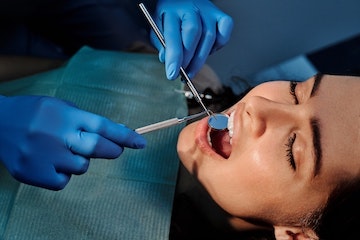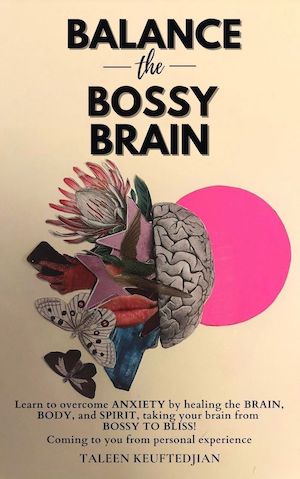Is There A Correlation Between Hygiene and Mental health
Many of us underestimate the importance of oral health and have a lack of knowledge as to how it has a cause and effect on the rest of our health. Our dental health is crucial if we want to live a happy and stress-free life without the concern of oral health implications taking over. Understanding the correlation between oral and mental health is not as obvious as people seem to think, but knowing its implications and how we can work towards bettering both our oral and mental health is vital.
Can a Tooth Infection Cause an Anxiety Attack?
There have been many studies carried out that have shown the correlation between how poor mental health can affect oral health. This means that dental issues such as a tooth infection can in fact cause an anxiety attack or depression. This is largely because of the lack of motivation and lethargic feeling that depressive episodes and anxiety can bring, leading to a lack of interest and willingness to carry out everyday necessities such as brushing your teeth. Additionally, it can work the opposite way too. For example, your poor oral health can deteriorate to the point where your mental health begins to suffer. This might be due to a drop in confidence and a surge in anxiety. Discomfort related to our teeth can be personal and embarrassing if you are reluctant to get help, plus dental care can be expensive meaning that many people do not have access to sufficient dental care.

Can a Tooth Infection Cause Depression? What Signs To Look Out For:
If you’re asking yourself, can a tooth infection cause depression, then you should consider the following warning signs that may indicate that you are falling into a bad place:
- You often skip brushing your teeth
- You try not to smile to hide your insecurities
- You avoid speaking sometimes to avoid exposing your teeth
- You feel anxious at the thought of going to the dentist
- You feel as though there is no hope for improving your dental health
- You have bulimic tendencies that result in frequent acid reflux
One thing to keep in mind is that your mental health can suffer as a result of poor oral hygiene or the opposite way round.

Seeking Professional Help
If any of the points made offer some truth to what you are currently experiencing, it is likely time that you seek some help. Of course, it would be wise to manage your tendencies first and try to implement new good habits, however, some of the poor habits can have severe health risks that would require professional help. Start by speaking to a trusted loved one if you have to ruminate thoughts that are linked to your oral or mental health and then start your journey to seek advice from health professionals who know the best way to benefit your current condition.
How to Improve Oral Health
If your mental health is stopping you from seeking help from professionals straight away, there are small but effective habits that can start to benefit you if you create a habit of using them. Here are just a few you can start today

#1 Regularly Brush
First things first, let’s get the basics back into your routine. Brushing twice a day is something that everyone should be doing, but having poor mental health can make brushing your teeth seem like a chore and something that is not worth doing. Start to shift your mindset, and consider the benefits you will get from brushing your teeth. This might include feeling fresher when starting your day, it is great when you first wake up, and also people can perceive you as a cleaner person if your breath smells minty fresh. It might be the last thing you want to do or only a small part of the whole picture, but starting small is the best way to battle any demons.

#2 Invest In New Dental Care
Perhaps you have not seen any benefit or improvement from brushing your teeth in the past, and often this is a sign that it is time to start improving the current tools you use to clean your mouth. This would include changing your toothbrush, getting a more effective toothpaste, and also using mouthwash to clean everything out after. You do not have to invest in the most expensive toothbrush possible, but simply making sure that you are regularly changing your toothbrush is a habit you should aim to implement. Starting to do what you can from home may drastically improve your dental health for the better, meaning you can avoid any expensive dental bills.

#3 Watch What You're Eating
What we eat and put into our guts can be one of the biggest contributing factors to our dental and mental health. As we have; heard a million times, what we eat is what we are, and this still reigns true. Not only can the food we digest affect our mood, but it can also have positive or negative effects on our teeth. For example, highly processed and sugary foods are known to negatively affect our mental and oral health. High sugar spikes that happen regularly can cause cavities and decay on our teeth, whilst causing energy crashes in our mood and motivation to effectively get through the day. Start aiming to eat unprocessed, nutritious foods that will allow for a balanced diet and will be kinder to your health. Of course, we are all allowed a treat now and then, but the key is to keep things balanced.

#4 Give Yourself Time
As mentioned, there is no time constraint on how long it will take to improve your mental and oral health. These things will take time, and you may never feel like your old self. The aim is to work towards becoming a better version of yourself that feels more in control of your mental and physical health.

#5 Visit the dentist with a loved one
When you feel ready to, you should consider visiting the dentist with a loved one. Some dental problems that have been a result of poor mental health are not so easily manageable, and when they start to stop you from performing normal activities such as eating without pain, you must go visit a dentist. Bringing a loved one is a great way to reduce dental anxiety. The dentist will be able to offer advice as to what the best action to take is. It might be as simple as using a fluoride-based toothpaste, or in some cases might require full dental implants due to the severity of their oral health. Regardless, they are there to tell you what is best for your health moving forwards, and you should trust that they want the best possible outcome for you.
Healthy Hygiene - Happy Life
Next time you ask yourself, can a tooth infection cause an anxiety attack, remember that there is clear evidence that mental and oral health have cohesive properties that directly impact each other. Learning to manage both might seem like a huge step especially if you have been suffering for a while, but simply taking the time to make small steps toward your end goal is the best place to start.
Writer Bio

Amy Jones is a freelance health and wellness writer. She loves researching and writing about new health trends and topics, as well as keeping up to date with the latest health news and eco friendly brands, When not writing, you can find her taking long walks in the countryside with her dog or browsing her nearest bookstore.
Check out This Anxiety Book!
A relatable guide to overcoming anxiety by finding the root cause, and bringing the brain, body, and spirit back into balance. Coming to you from personal experience!


~ Balance the Bossy Brain



